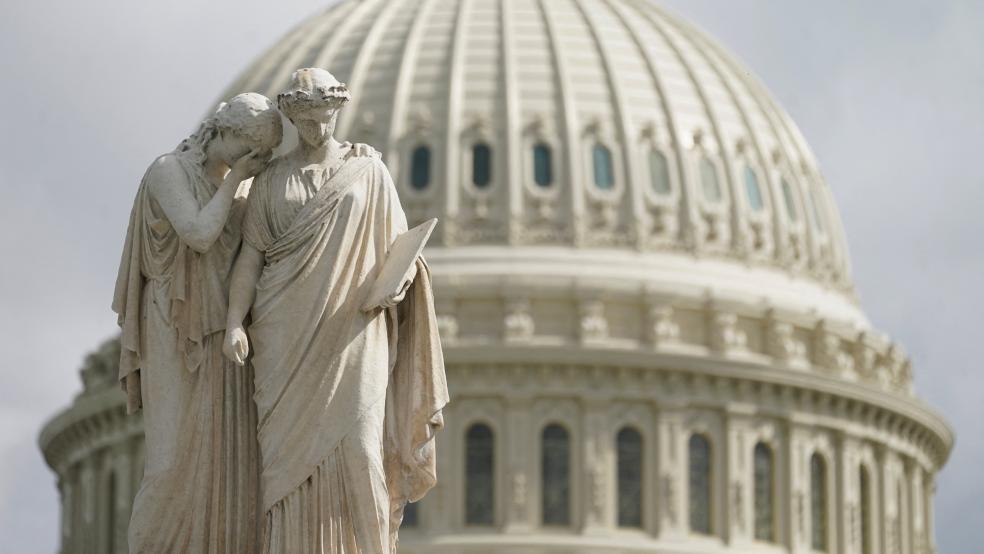When Congress returns from the summer recess next month, they’ll have just a few weeks to fund the government past the end of September and avoid a shutdown of federal agencies. Lawmakers are expected to pass a short-term spending bill called a continuing resolution, but the details of that measure, especially its duration, remain in question — and could be the subject of a September fight.
House Speaker Mike Johnson, a Louisiana Republican, will have to negotiate with Senate Democrats and the White House, though he may also have to overcome divisions on strategy within his own conference. The ultraconservative House Freedom Caucus on Monday announced its position on the matter, urging Republican leaders to seek a funding extension that stretches into early next year to avoid a massive post-election spending bill that could preserve Democratic policy preferences.
Many on the right want to allow a potential Trump administration to have a say on spending in the first months of 2025. Other Republicans are reportedly pushing to have a spending package finalized this year, arguing that it would allow a potential Trump administration to get a jump start on its agenda, free of any lingering spending battles and the distractions they could cause.
The Freedom Caucus made clear that it would prefer that House Republicans pass all 12 annual appropriations bills “to cut spending and advance our policy priorities,” but acknowledged that a continuing resolution may be inevitable. Republican leaders had laid out ambitious plans to pass all 12 full-year funding bills by August, but those efforts were derailed by continuing GOP infighting that led party bosses to cancel planned votes and head out of town a week early.
The House has passed five of the 12 spending bills. The Senate has passed none so far.
The Freedom Caucus also called on leaders to include the SAVE Act with the continuing resolution. That bill that would require people registering to vote to provide documentation of their citizenship, even though voters are already required to affirm their citizenship status when they register, and it is already illegal for noncitizens to register and vote. Democrats would oppose packaging that legislation with the funding bill, meaning that its inclusion would raise the chances of a shutdown.





